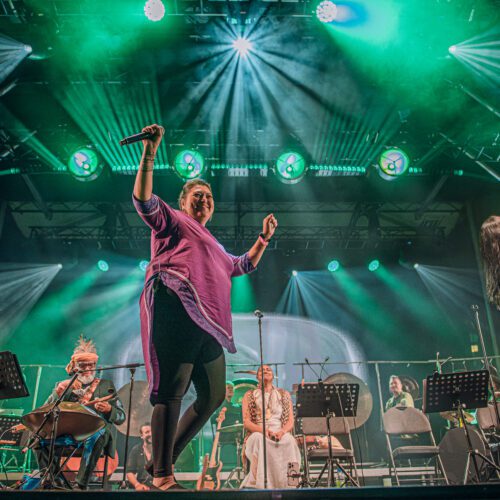If the German playwright Jakob Lenz (1751-1792) had known the impact his work was to have on the artistic world, he might not have sunk into insanity, who knows? At odds with his time and his society, Lenz wrote masterpieces (The Preceptor, The Soldiers – which Bernd Alois Zimmermann turned into an opera) that were highly critical of his time. As a result, he was one of the fathers of the Sturm und Drang movement in the mid-18th century, itself a precursor of Romanticism. So he made a substantial contribution. The end of his life was marked by a crescendo of provocations against the social conventions of his time, and finally, an insanity (at least, this was the view of his contemporaries) that led to him being chained up and then driven into total isolation. He was found dead in some street.
Lenz has inspired art, but also artists themselves. As early as 1835, Georg Büchner (author of Wozzeck) wrote a short story about Lenz, from which Rihm’s librettist, Michael Fröhling, constructed Jakob Lenz, set to music by the German composer who died in July 2024. The originality of this libretto lies in the fact that it superimposes, like transparent acetates, different layers of the story of Lenz. First there are historical elements, concerning the author’s visit to Doctor Oberlin in 1778. Then elements from the doctor’s diary and finally, Büchner’s short story.
Through kaleidoscopic, ultra-transparent music, in which the choral voices appear as polyphonic spectres representing morality, Lenz’s individuality, remorse, fear, defiance, etc., Rihm fabulously unifies the polystratified reading of the historical figure. The German is at his best in this writing, teeming with varied textures and direct, comprehensible expressionism.
Jakob Lenz is an absolute masterpiece that is ideally presented in this production by the Mannheim National Theatre Orchestra. All the soloists are equal to the task, but Joachim Goltz’s tour de force in the lead role deserves a special mention. The tenor is as if inhabited by this character, who today would be described as schizophrenic. Goltz succeeds in portraying all the psychological complexity of Lenz, with all his emotional and sensory distortions.
Not to be missed under any circumstances if you love contemporary opera (and brilliant music in general).
























